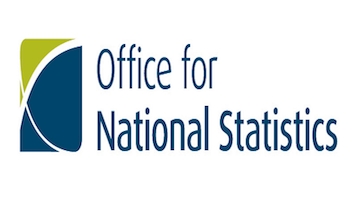Inflation has jumped to its highest rate for about two and a half years.
The Consumer Prices Index (CPI) rose by 1.6% in the year to December 2016, compared with a 1.2% rise in the year to November.
The rate in December was the highest since July 2014, when it was also 1.6%.
Price movements for the majority of the broad groups of goods and services acted to increase the rate between November 2016 and December 2016, the Office for National Statistics said.
CPIH (not a National Statistic) rose by 1.7% in the year to December 2016, up from 1.4% in November.
Below, the table shows the CPI rates over the last year.

Reaction
Ben Brettell, senior economist, Hargreaves Lansdown, said: "December’s producer price data contains a strong indicator that higher inflation is coming. Input costs rose 15.8% year-on-year – the highest figure recorded for more than five years. It’s unlikely cost increases of this magnitude can be fully absorbed by firms, leaving them with little choice but to pass some on to consumers in the coming months.
"The Bank of England says CPI inflation will exceed the 2% target by the middle of the year, though I wouldn’t be surprised if it happens sooner than that.
"However, the effect of the weak pound, assuming it doesn’t fall much further, is a one-off factor which will fall out of the figures eventually. The longer-term picture is one of structurally low inflation – due in part to demographic reasons."
Alex Brandreth, deputy chief investment officer and senior fund manager at Brown Shipley, said: “As inflation figures increase this morning, this marks the beginning of a period of raised inflation in the UK which is going to continue to march higher over the next few months. The reasons for this are linked both to the collapse in sterling following Brexit and to a recovery in global commodity prices.
“Retailers in the UK now have a decision, do they absorb this price pressure or start to pass it on to the consumer? I believe they will opt for the latter, which means the UK consumer may be in for a tough time with inflation picking up and wage increases lagging.”
Shilen Shah, bond strategist at Investec Wealth & Investment, said: “The year on year CPI print for December came in 0.2% higher than the consensus figure of 1.4% as the sharp fall in Sterling’s value pushed up import prices.
"Import prices themselves jumped by 16.9% year on year and this is a sharp indicator that consumers are likely to be faced with further price pressures in 2017.
“As indicated by Governor Carney, the BoE’s patience in relation to inflation overshooting its target is limited, with the core CPI figure coming in at 1.6%, indicating that price pressures are likely to accelerate over the course of 2017.”
Russ Mould, investment director at AJ Bell, said: “It is intriguing to hear Bank of England Governor Mark Carney warn of the risks posed by a spike in inflation as today’s price increase data suggests that the UK’s central bank may be getting exactly what it wished for when it cut interest rates and extended its QE bond buying scheme back in August.
“In theory the Bank of England and the Government should be cheering, since rising inflation helps the former meet its mandate and the latter erode the value of its debts and interest payments to lenders in real terms.
“Consumers may be less pleased although wage growth is running at 2.5% year-on-year so they are still better off, but there remains a danger that further wallet and purse-busting price hikes are coming down the line.
“The effect of both the pound and crude can be clearly seen in the year-on-year change in the key components of the producer price inflation data, namely fuel, food and imports."
Rachel Springall, finance expert at Moneyfacts.co.uk, said: “With inflation expected to rise significantly over 2017, it is sadly going to stay a dreadful time to be a saver. While there was a welcome slowdown in the number of cuts to savings rates last month, consumers will remain underwhelmed by the lack of competition for their cash.
“It will be no surprise if we start to see savers sacrifice the necessity to make savings provisions for the future in favour of overpaying their debts, particularly as there is little interest to be gained on most savings accounts currently on the market. In fact, some savers feel it is pointless to shop around for a better deal, assuming poor rates are everywhere, despite the majority not knowing how their current rate stacks up."

